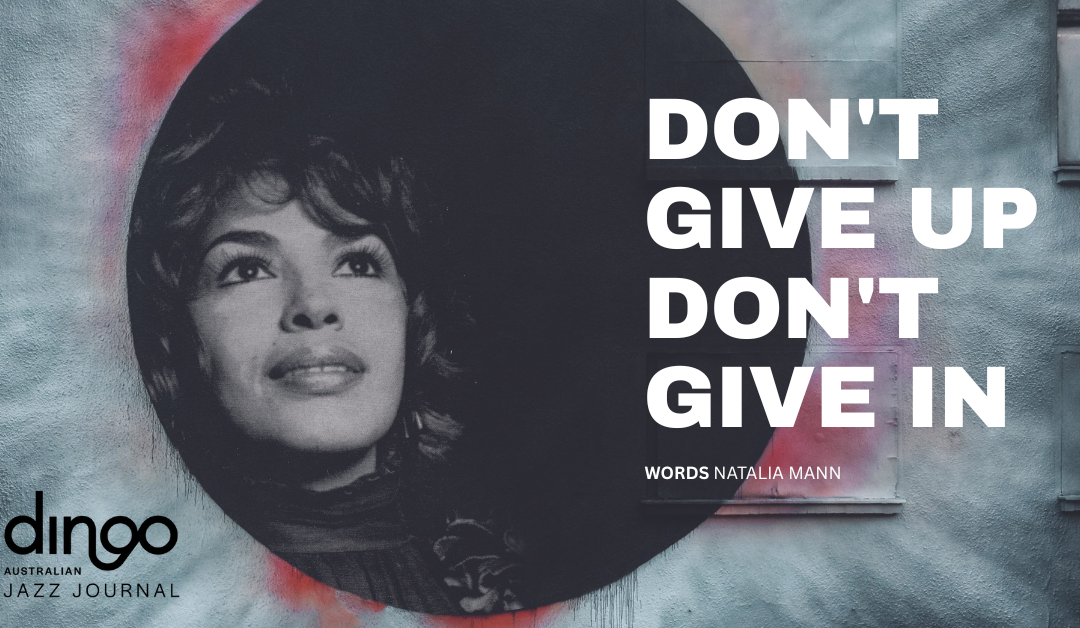Wilma Reading represents jazz royalty, a respected name in the Cairns music scene for young and old. Still curious about who’s involved and what’s going on in the local scene, she was keen to know who was recording in the studio down the hall before our meeting, and have a yarn in her characteristic bubbly style. Sitting with me for Dingo magazine, she describes a life full of stories that touch on significant moments in history.
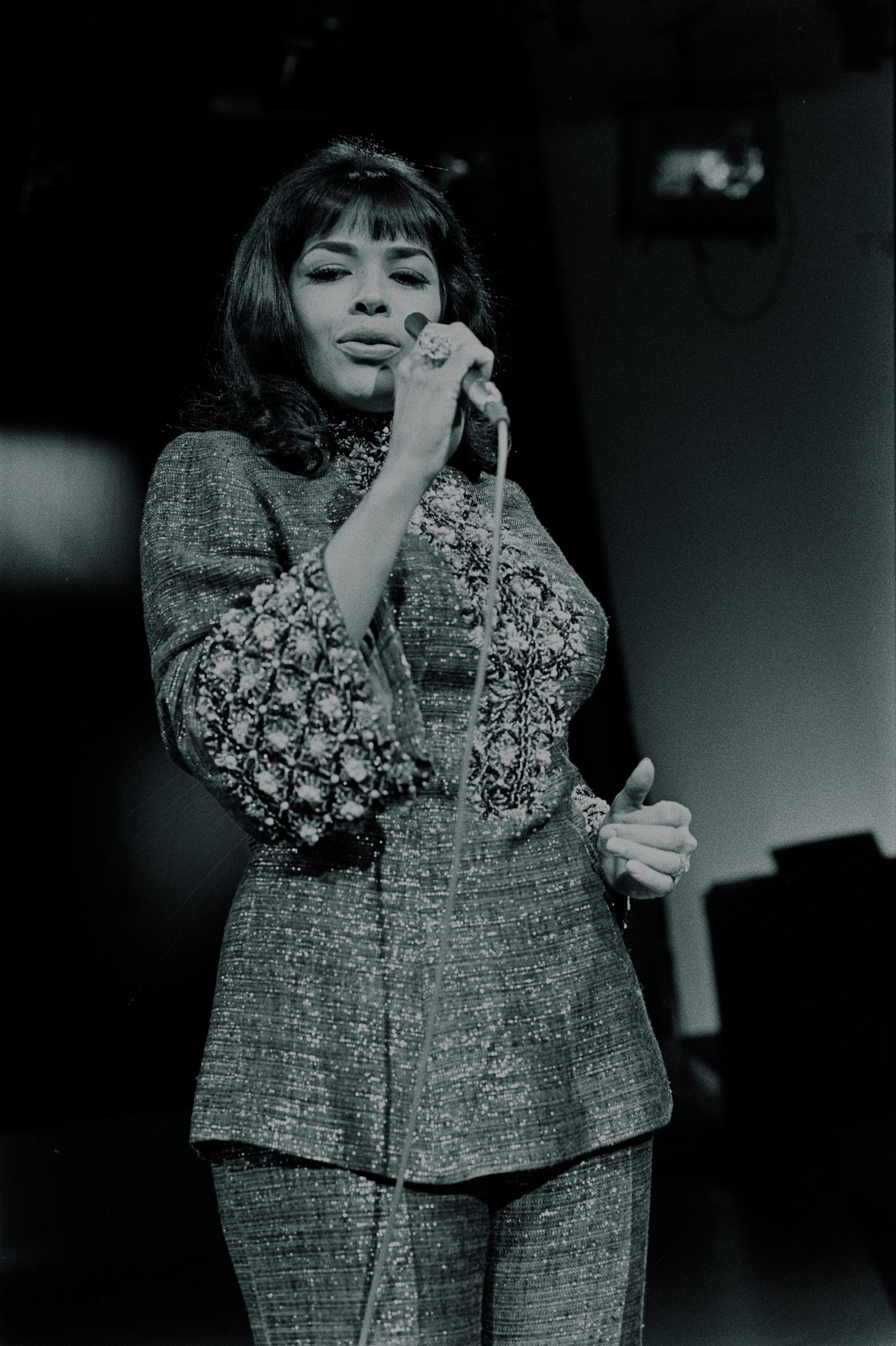
Wilma Reading grew up singing as a regular part of family life in Cairns. Music was strong on both sides of the family – classical on her father’s side, rhythm and harmonies on her mother’s side. She and her siblings won national awards for their singing while young. At 13, when her dad was unable to work, Wilma left school and asked for her first job in the local mill to help support her family – an experience which, she says, gave her a lifelong attitude of “having the guts to get out there and try it”.
“I got my first singing opportunity at 17 for a jazz swing band at the Ritz Ballroom in Brisbane. My dad gave me an offer, ‘If you can make a living out of this singing business you can go and get the job. Otherwise you come back home.’ I’d go to the jazz clubs and have a listen and ask if I could have a job, and that’s how it started. I ended up working six nights, seven nights a week.
“My sister’s husband played drums and was a musician. He’d play me records and say, ‘Listen to the phrasing, listen to this, listen to that.’ That sort of perked my ears up to what to listen to. That’s how I learned to sing jazz, plus the feel of it. You’ve got to try it yourself.
“In Sydney I was working the Sammy Lee & Reg Boom nightclub, the Latin Quarter, I did recordings for Festival Records, I was often on Bandstand on television, and doing coffee shops around. I liked the rhythm, liked the music, I liked singing live, and that to me is important. Because when you’re working a room, if you see someone you can say hi, have a little hello or something, to connect with, that helps improve your personality.”
Wilma moved to Melbourne, became a regular feature on GTV9 and sang with the Australian Jazz Quartet. Over the next few years, she worked as a resident solo artist in hotels in New Zealand, Calcutta (now Kolkata), Bombay (now Mumbai), New Delhi, Manila, Kuala Lumpur and Okinawa. She opened the Hong Kong Hilton and then went to the Tokyo Hilton, starring in the Japanese Tokyo By Night revue. The show was picked up for Las Vegas and toured the US for 15 months. She went to New York with her husband manager, comedian Ray Lehr, and soon found herself in the upper echelons of the New York scene.
New York 1965
“There was an agent who approached me, ‘Are you the Australian singer? Duke Ellington wants you to sing in his band.’ Somehow, he’d heard about me.
“When I went to Duke Ellington’s house to meet him the first time, that was in ’65, he was lovely to me, but he kept staring at me. He called me back in another time, and his son was sitting there, and he brought his wife out to meet me, and she was very nice, big smile. And they’re all staring at me. The next minute he picks up the phone and starts talking, you know, still staring at me. He said, ‘Yeah, I’ve got this girl here from Australia… yeah Australia. I want you to check her out for me. Ok, ok, I’ll send her over tomorrow afternoon … 2:30 ok she’ll be at your place at 2:30.’ It was Billy Strayhorn!
“Billy Strayhorn wrote ‘[Take the] “A” Train’ and a lot of things for Duke. He stayed with him forever. He took me into his piano room and there was only one sheet of music on the piano. I looked at it, and I’d never seen the music to ‘Lush Life’: ‘I used to visit all the very gay places, those come what may places …’ Billy Strayhorn wrote that song. All the big stars like Lena Horne were singing his songs, but they kept changing a lot of his notes and things, especially the ending, and he didn’t like it.
“He asked me if I knew the song. I said, ‘I’ve heard it, I listened to a Sarah Vaughan recording and I think it’s a great song.’ He said, ‘Well do you want to try it?’ I said, ‘Ok, I’ll try it,’ and he picked a key. He got right to the end, and I froze. On the last page there were only the four or five notes. I was going to sing it the way Sarah Vaughan sang it (more flowery with more notes), and I went into panic, I thought ‘Oh God, what do I do now?’ I had three seconds to make up my mind before the end of the song. So I went with my gut feeling, I followed what was written on the page. I sang it as he wrote it.
“Then he sat down like that. Thinking, thinking, thinking. I thought, ‘Oh I must have messed that up, I don’t know, he’s not even talking to me.’ It went on for minutes! But Duke must have told him ‘Check her out for me’, and now he’s checking me out, and knowing what Duke plays, and how would I fit in with my voice and the band, there’s all that to take into consideration. I didn’t dare move, I stood there and he turned to me, it must have been about four, five minutes nearly, that’s how long it took. Then he turned up to me and said, ‘Thank you for singing this song the way I wrote it. You got the job.’
“I was singing with Duke Ellington first as a band singer. It wasn’t long after that he asked me to be the ingenue in his musical Black & Tan Fantasy. He’d been trying for years to get that on Broadway. At that time, Broadway was not ready for any negroes. It was mainly Jewish and white – Irish, English whatever. The only negro people who were there played a servant or the big mama. They weren’t ready yet to let negroes – they were called negroes at that time, in the 60s, late 50s – have their own show. Because it was really run by a fistful of people who had all the money. They weren’t yet ready to accept [them], and Duke Ellington was waiting for ages. I looked like the perfect ingenue for him. I wasn’t really black, I wasn’t negro, I was a mixture. But I looked French Caucasian, and that’s what he sought. He wanted me to stay with him, and he gave me a job singing with the band.
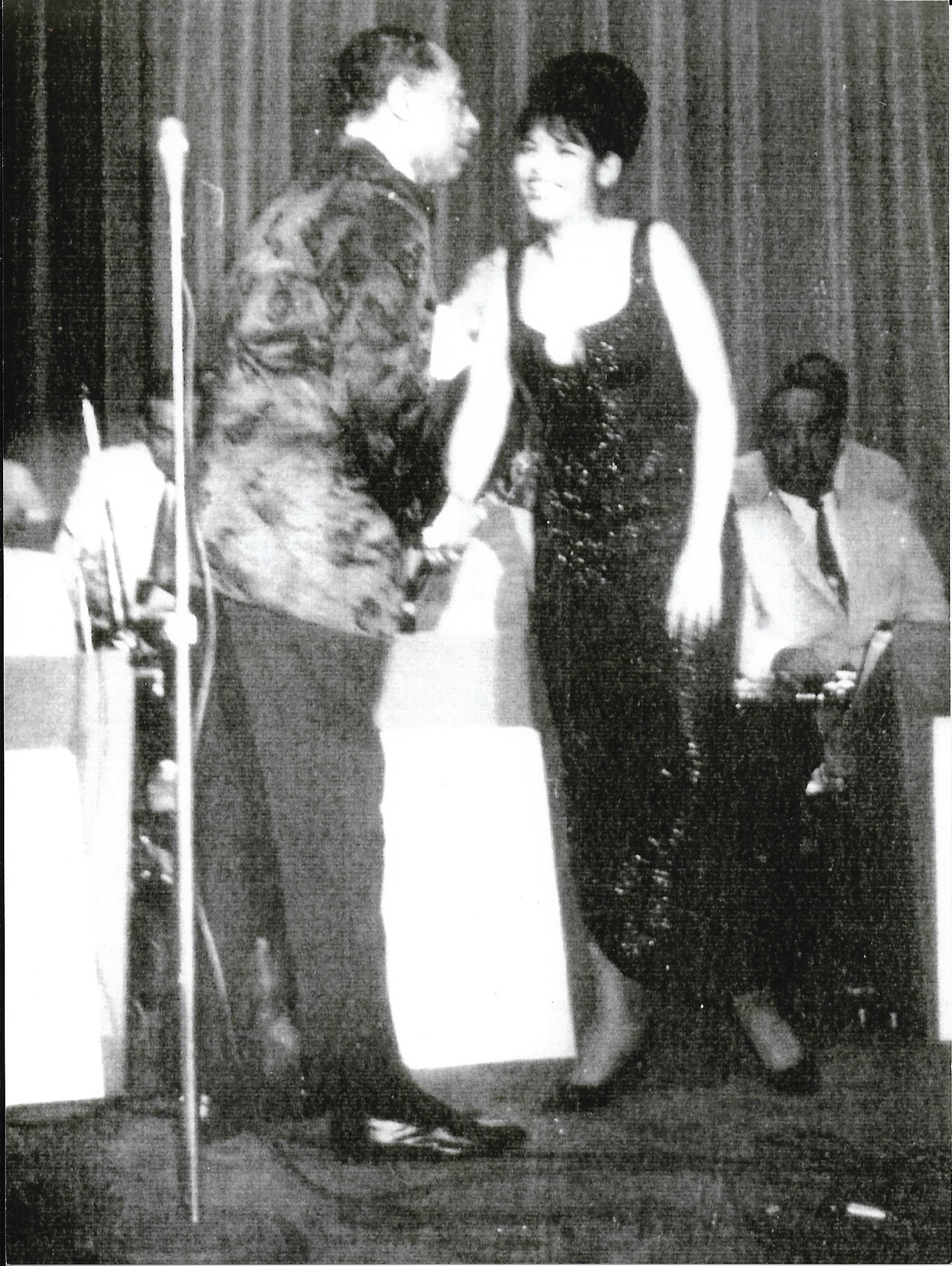
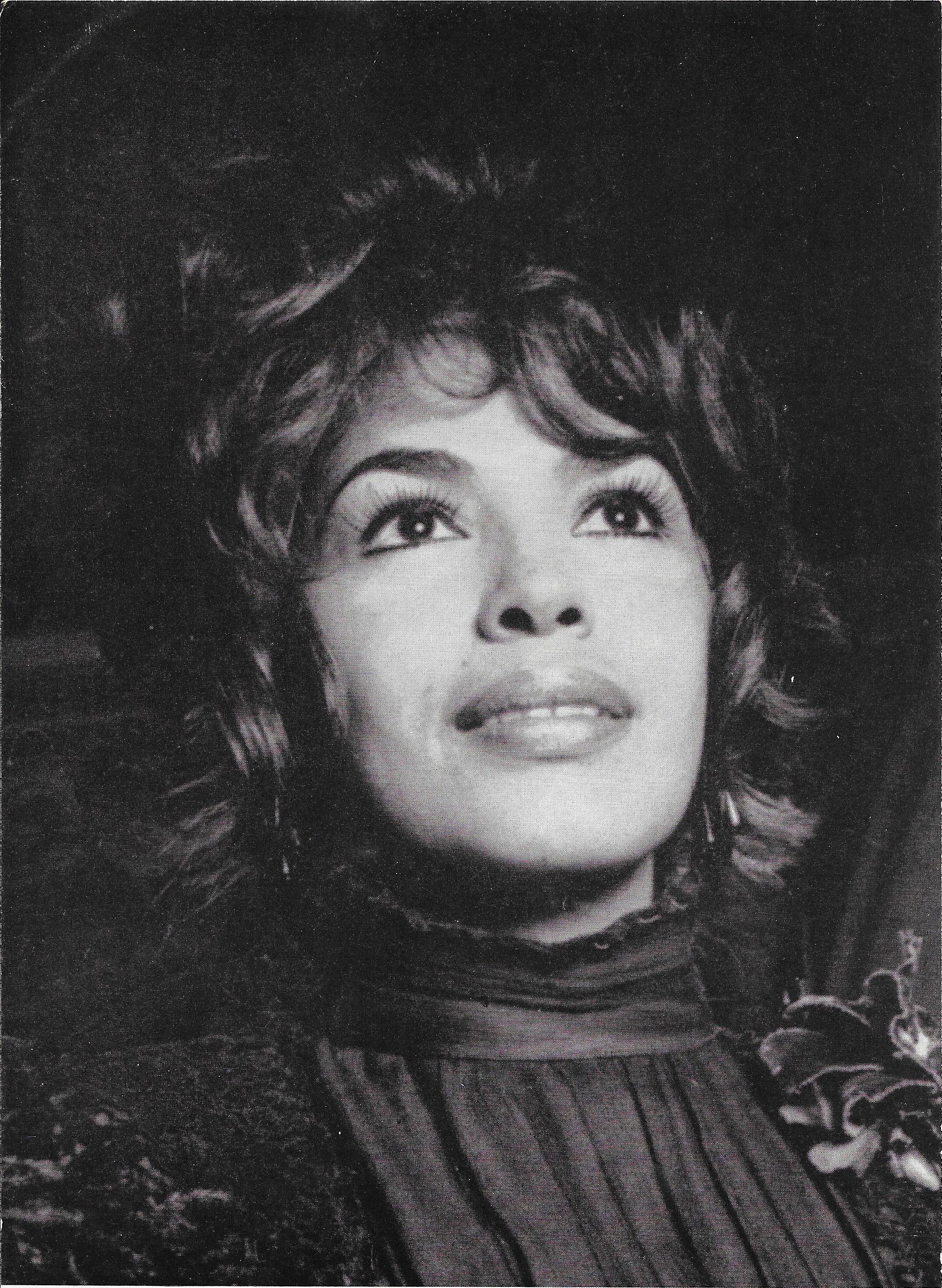
“I did the Johnny Carson Show because of Duke Ellington. He said ‘Ladies and Gentlemen this is the first Australian I’ve ever had on my show!’ And it was something new for Johnny Carson to talk about this Australian girl because they didn’t know what an Australian looks like. I said ‘My mother’s father was born on Darnley Island in the Torres Strait.’ ‘Oh, what’s the Torres Strait?’ It was enough just to be Australian, and talk about Australia.
“I went to school every day to learn to sing, the breathing, projection, attack. In that time I managed to extend my vocal range higher, and I actually managed to double it. That’s quite impossible to do. It’s only because I wanted to do that and I had the will and the self-discipline to do it, do it, do it! I knew it was the only chance I’d have in my whole life to do this. I went to class at 9am, seven days a week, for three months solid.
“After the three months we were ready to go into rehearsal for Black & Tan Fantasy, but on the very last day, by 11 o’clock, the last person who was to invest money didn’t come up with his fee, and they lost the theatre.”
Black & Tan Fantasy was never staged in Ellington’s lifetime. Meanwhile, Reading’s newfound vocal range had kindled a yearning for improvisation beyond the discipline of Ellington’s arrangements. Leaving New York then, she would only return six years later to headline at the famed Copacabana Club. Life led her to Vietnam, where she performed for troops and officers in the thick of the war. She spent some time in the Philippines recording and then went on to brighter days in London.
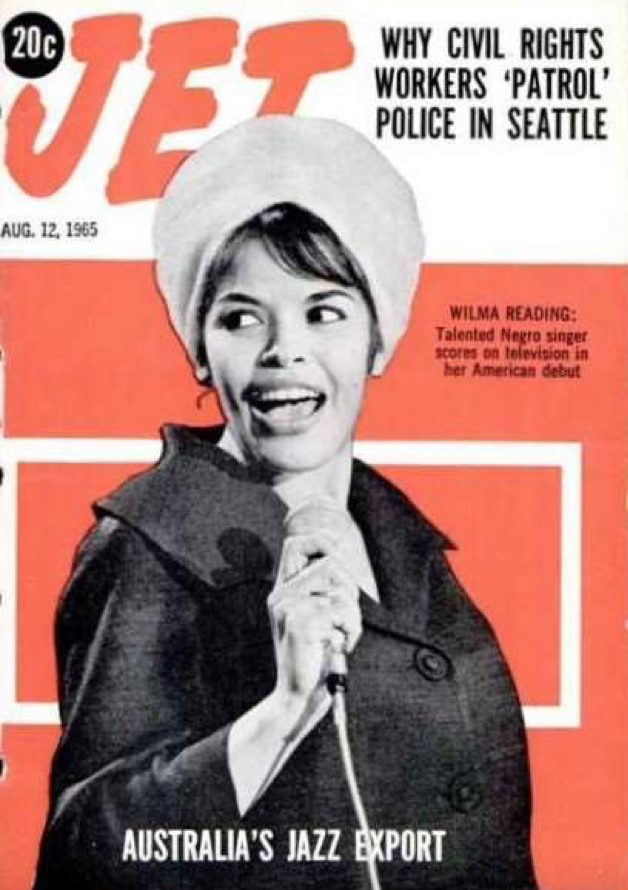
London 1972
“The 70s and 80s were a great time for me because I did a lot in England. I took over from Cleo Laine in Showboat, at the Adelphi Theatre in the Strand. I just happened to come into London at the time and some friends said to me, ‘Wilma, they’re looking for an artist to take over from Cleo Laine. They’re holding auditions this week.’ So I went down and I auditioned for it. They called me back, and I got the job. So happy! So happy!
“London was really fun. I loved London. I did a lot of television and people come up and say, ‘Look, I want to make an album with you. Would you like to do that? Can we work together?’ I had so much happen for me out of England. I did BBC television for the Morecambe & Wise comedy series. I spent a fortune on costumes. Engelbert Humperdinck invited me to be on his Christmas show and I met Tom Jones. Princess Margaret asked me to do a show for her and her entourage in at The London Room.
“I was working at the Talk of the Town, it was the biggest showroom at the time. Sammy Davis, Frank Sinatra, they all sang there. I was doing the main show there for a month. One night the stage manager came back and said, ‘Wilma there’s a delegation from Russia here, they want to speak with you.’ I said ‘Oh wow, what do they want with me?’ So he brought them back, there were three of them, the ambassador plus his two aides. ‘Well, Ms. Reading we came to the show, we enjoyed the show. We would be interested if you would like to tour Russia.”
Moscow 1979
“At that time there was a big underground black market for Beatles cassettes around the world and especially in the communist countries. The youth didn’t all want to study classical music anymore, they wanted to go into pop music, they wanted to play like the Beatles.
“The tour was curated to introduce young people in Russia to rock. In 1979, the first artist through was B.B. King the American blues guitarist, two months later was Elton John, and the third one was me. I wondered why they chose me as an Australian, but I think it was because of my singing style. There weren’t many people who could sing with a classical voice but then get down and sing rock, pop and modern-day ballads of the era.
“I worked with American musical director Danny Sandidge to write a program for Russia. We started with Gershwin, then swing, Ellington, into jazz and then into a Beatles medley at the end for the young ones. I took big theatre costumes because I was on stage by myself. We took scores for the seventy-five musician symphony orchestras plus my standard 18-piece swing band.
“We played houses in Moscow, St Petersburg and Kiev. Oh, they loved it! When I came out sometimes there were 300 people waiting for an autograph. As it turns out they kept on adding concerts. In the end I did 33 concerts in 28 days.
“It was a very big experience for me to do that. Hard work! ‘Don’t give up and don’t give in, and that’s the way you’re going to win.’ My mother taught me this, and that was the mantra for my life. When I sat back and thought about it, I thought, ‘Wow, we did it!’”
While relatively unknown on home soil, Wilma Reading lived life in the limelight as a respected and loved international headliner. Starring on stage, in theatre, on records, television and even in feature films, she became one of the forerunners in opening the world’s awareness of who Australians were.
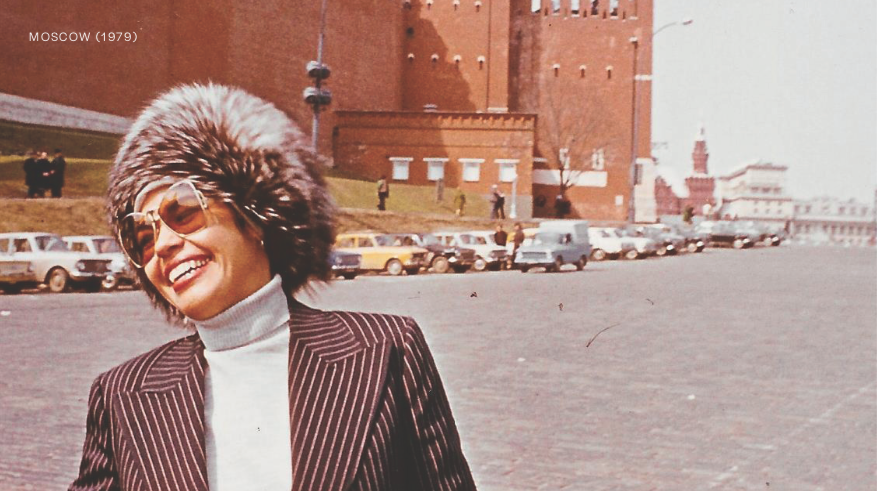
“My grandmother always said, ‘When you finish travelling and singing, my girl, you come home. This place is where you belong.’ So I did. I think from my own life experience, and there’s a lot of years, I went out to make it good, to try to be the best I can possibly be. For me it’s been a full life and I’ve been very grateful that I’ve had the chance to meet so many wonderful people. I’m still enjoying life. It’s nice to wake up in the morning! (laughs)”

